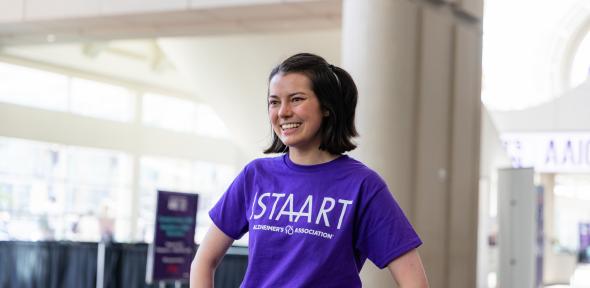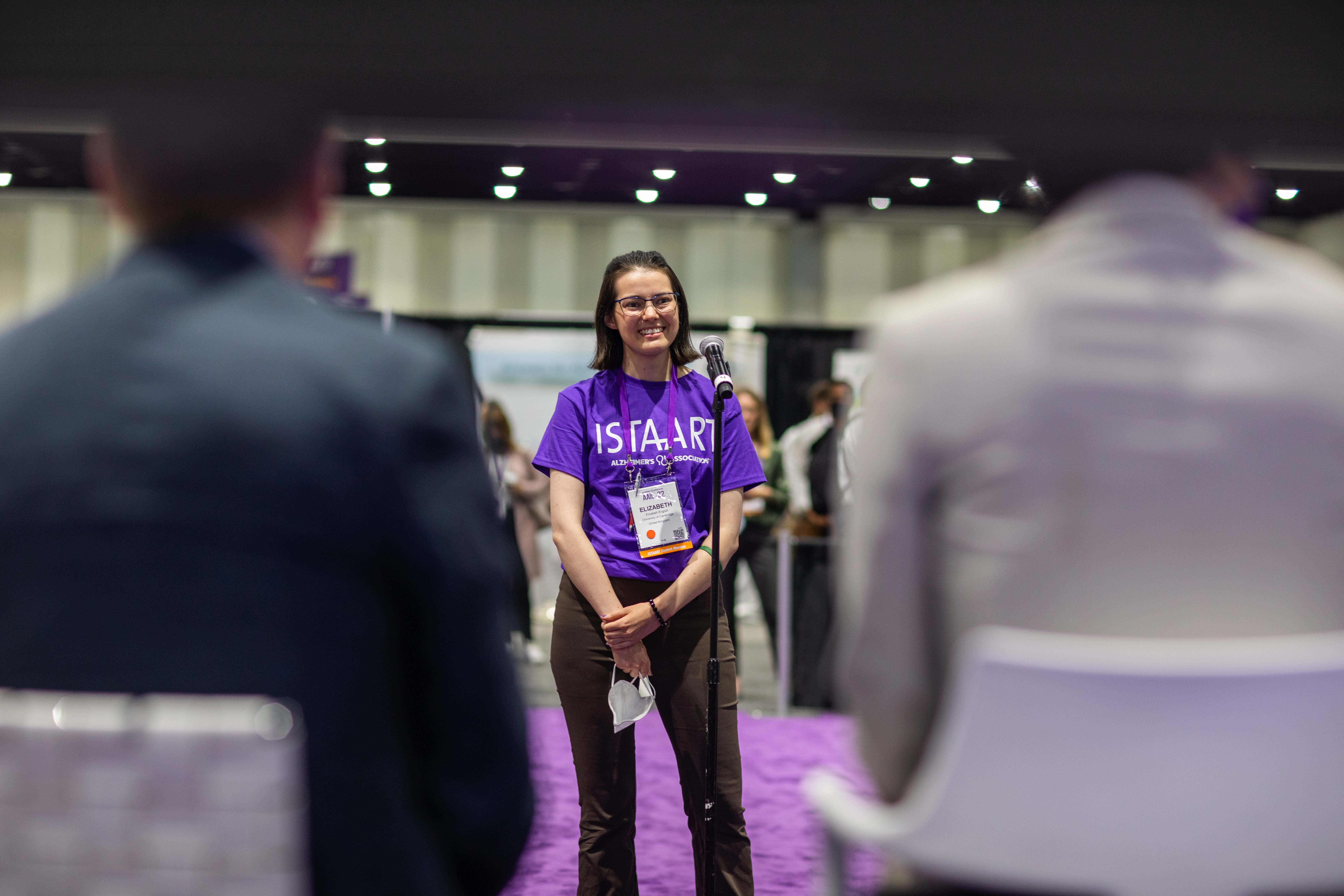
Elizabeth ‘Lizzie’ English wanted to connect with other women in neuroscience but couldn’t find quite the right organisation. So she started the Women in Neuroscience Network in the UK.
“Statistically, there is a decrease in the percentage of women in neuroscience as you go up the career ladder,” comments Lizzie, who is a second-year PhD student studying Alzheimer’s disease in Professor Sir David Klenerman’s group. “I want to build an environment that is welcoming for women who are in neuroscience at all career stages, to make them feel like they have a place there.”
The Women in Neuroscience UK network is part of Lizzie’s solution. With the network, she aims to connect everyone dotted across the UK who studies neuroscience and is interested in gender disparities in research culture. Lizzie has chaired two panels in the network’s debut year, inspiring discussion and speculation around the interplay between gender and dementia, concussions and autism diagnoses.
Klenerman lab
Much of the research in the Klenerman lab involves degenerative disorders caused by misfolding proteins. Alzheimer’s disease is a brain disorder that can cause dementia and is thought to be caused by protein clumping in the brain. These clumps build up into aggregates and these are the subject of Lizzie’s research.
“I’m investigating a region of the brain called the middle temporal gyrus, and that is believed to be impacted by Alzheimer’s disease,” comments Lizzie. “It’s an honour to be able to use these samples. They were once part of someone’s mind.”
She compares healthy and diseased human brain samples using custom microscopes that are built by the group. Protein aggregates are even smaller than cells and difficult to see even under a microscope, so to investigate these aggregates Lizzie adds different antibodies to the samples, that bind to specific proteins and fluoresce. For the first year of her PhD, she worked on refining these methods, and will soon scale up the sample size with hopes to define different candidate mechanisms responsible for Alzheimer’s disease.
istaart ambassador

Lizzie presents at the Alzheimer’s Association International Conference. Courtesy of ISTAART.
If completing a PhD and starting a nationwide network wasn’t enough, Lizzie was also selected as one of 25 global ambassadors for The Alzheimer’s Association International Society to Advance Alzheimer’s Research and Treatment. ISTAART is a global initiative supporting dementia researchers. Recently, she volunteered with the society at the Alzheimer’s Association International Conference, the largest dementia research conference in the world.
The Alzheimer’s Association funded her travel to the conference, which was based in San Diego this year. “I met so many inspiring scientists I would never otherwise have seen, and made friends with ambassadors from Australia to Brazil.”

